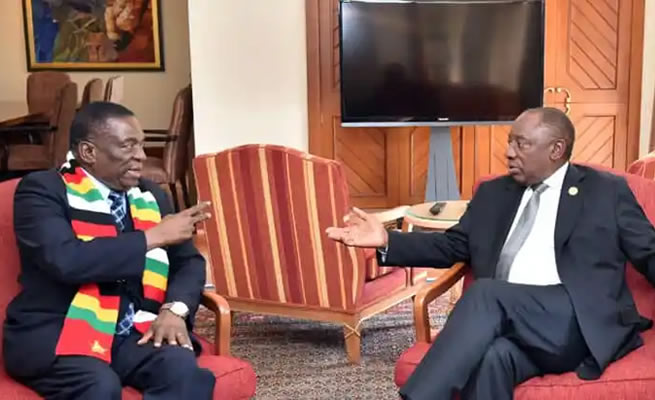South African President Cyril Ramaphosa has signed into law a bill enabling the state to expropriate land without compensation, a move that has ignited significant debate and opposition within the country’s political landscape.
The legislation, hailed by the ruling African National Congress (ANC) as a “significant milestone” in South Africa’s transformation, aims to address the deeply entrenched historical inequalities in land ownership.
More than 30 years after the end of apartheid, a disproportionate amount of farmland remains in the hands of the white minority, leaving Black South Africans with a small fraction of the nation’s agricultural land. This imbalance has fuelled widespread frustration and anger, prompting calls for accelerated land reform.
The new Expropriation Bill replaces the pre-democratic Expropriation Act of 1975, which mandated compensation for expropriated land based on the principle of “willing seller, willing buyer.” The new law, however, allows for expropriation without compensation under specific circumstances deemed “just and equitable and in the public interest.” These circumstances include situations where land is unused, undeveloped, or poses a risk to public safety.
President Ramaphosa’s spokesperson, Vincent Magwenya, clarified the legislation’s provisions: “Under the law, the state ‘may not expropriate property arbitrarily or for a purpose other than… in the public interest’,” he stated. “Expropriation may not be exercised unless the expropriating authority has without success attempted to reach an agreement with the owner.” The legislation’s enactment follows a five-year consultative process and incorporates the findings of a presidential panel established to investigate the matter.
However, the bill has sparked considerable opposition. The Democratic Alliance (DA), the second-largest party in the government of national unity (GNU), strongly opposes the law and is consulting with lawyers to explore potential legal challenges. While acknowledging the need for land restitution, the DA objects to the parliamentary process used to enact the legislation.
Similarly, the Freedom Front Plus, representing the interests of the white minority, has vowed to challenge the law’s constitutionality and pursue its amendment if deemed unconstitutional. A key concern for this party is the potential threat to private property rights.
Even within the ruling coalition, dissent exists. Some coalition partners have indicated their intention to challenge the law in court. Beyond the coalition, the Economic Freedom Fighters (EFF), known for its radical stance on land nationalisation, has criticised the law as a “legislative cop-out,” arguing that it will not effectively resolve South Africa’s land restitution issues.
A Cautionary Tale: Zimbabwe’s Land Reform Experience
The South African government’s move towards land expropriation without compensation invites comparison to Zimbabwe’s controversial land reform programme initiated after the year 2000. Under President Robert Mugabe’s leadership, the Zimbabwean government, backed by war veterans, embarked on a widespread seizure of land from white farmers, with no compensation offered. This action, initially presented as a means to redress historical land injustices, had devastating consequences for Zimbabwe’s economy.
The chaotic and often violent nature of the land seizures disrupted agricultural production, leading to a sharp decline in food output and exports. Zimbabwe, once a significant exporter of agricultural products, became heavily reliant on food imports, experiencing widespread food shortages and famine. The lack of investment and expertise following the displacement of experienced white farmers further exacerbated the situation.
Many farms fell into disrepair, impacting productivity and economic growth. The resulting economic crisis led to hyperinflation, widespread poverty, and a mass exodus of skilled workers and farmers. To this day, the white farmers who lost their land remain uncompensated, a testament to the long-term economic and social costs of the programme.
The South African government’s approach, while aiming for a more orderly process, serves as a stark reminder of the potential pitfalls of poorly planned and executed land reform initiatives. The long-term consequences for South Africa’s agricultural sector and economy remain to be seen.

Follow @MyZimbabweNews












